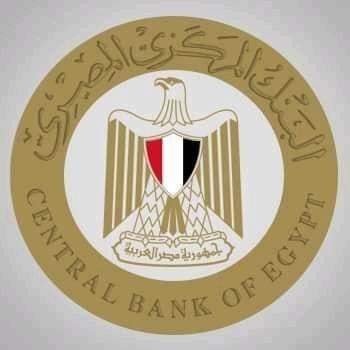In a surprise move to many economists and experts, the Central Bank of Egypt announced, on Thursday, that it would cut interest rates for the second time in a row by about 50 basis points. The decision to cut was largely surprising as few specialists expected it, while most experts and analysts favoured the scenario of fixing interest rates. The decisions of the Monetary Policy Committee at the Central Bank of Egypt opened the way to many speculations by institutions and financial experts about the feasibility and implications of the decision to reduce interest rates on deposit and lending. The committee decided, also against expectations, to cut key interest rates by 50 basis points as well at its last meeting in September. Thus, the rate of return on each of the deposit and lending overnight, and the rate of the main operation was 8.25 per cent, 9.25 per cent, and 8.75 per cent, respectively, and the rate of credit and discount reached 8.75 per cent.
The committee attributed its decision to support economic growth while efforts to contain inflationary pressures continue. She said that the additional reduction decision aims to provide adequate support for economic activity at present, claiming that this decision is consistent with achieving price stability in the medium term.
Effects of the decision
Although the government and Central Bank of Egypt officials have promoted concurrent statements in newspapers and channels that the decision to reduce the interest rate will attract investment, others believed that the decision will have negative repercussions. The reduction came despite the rise in inflation last October, as the annual rate of general inflation in Egyptian cities rose for the second month in a row to a record 4.5 per cent last October. This compares to 3.7 per cent in September and 3.4 per cent in August, but it remains near historical lows.
The bank expected inflationary pressures to continue to be contained during the last quarter of 2020, with inflation falling to less than six per cent, which is below the minimum target range of 6-12 per cent. He explained that this is what prompted the decision further to reduce interest rates in support of economic activity and to achieve price stability in the medium term.
Basant Fahmy, a specialist in Egyptian economic affairs, objected to the Monetary Policy Committee’s decision to cut interest rates. She confirmed in a press statement that any new rate cut at present will have negative effects before the uncertainty of the outbreak of the second wave of the corona pandemic. She indicated that the reduction does not attract foreign investors to invest in Egyptian debt instruments that the government relies upon to provide liquidity and bridge the financing gap in the state’s general budget, which is what the government claims. When the interest rate was cut last September, Basant Fahmy said that continuing to reduce the interest rate has a negative impact on the middle class in Egypt. She explained that there is a large number of Egyptians who live on the income of their investments in banks, whether it is deposits or certificates, and when the interest rate is lowered, the purchasing power of these citizens will decrease. She added that this would result in a recession, which may be followed by a state of wide recession, as inflation does not decrease, but rather the citizens’ purchasing power decreases, which means that we are in a state of recession and not a decrease in inflation.
In the same context, economic analysts said that the decision to cut interest would negatively affect depositors, as it is assumed that banks will tend to reduce the interest they receive, thus obtaining a lower return. In the long term, investment bank Renaissance Capital expects to cut interest rates by 200-300 basis points over the next year. He explained that this stimulates investment and attracts direct foreign investment in the manufacturing sector during 2022, according to what the bank’s chief global economist Charles Robertson wrote in a new research note. According to the memo, these cuts may affect the price of the Egyptian pound, which may decline to EGP 16.5 to EGP 17 per $1.




Recent Comments